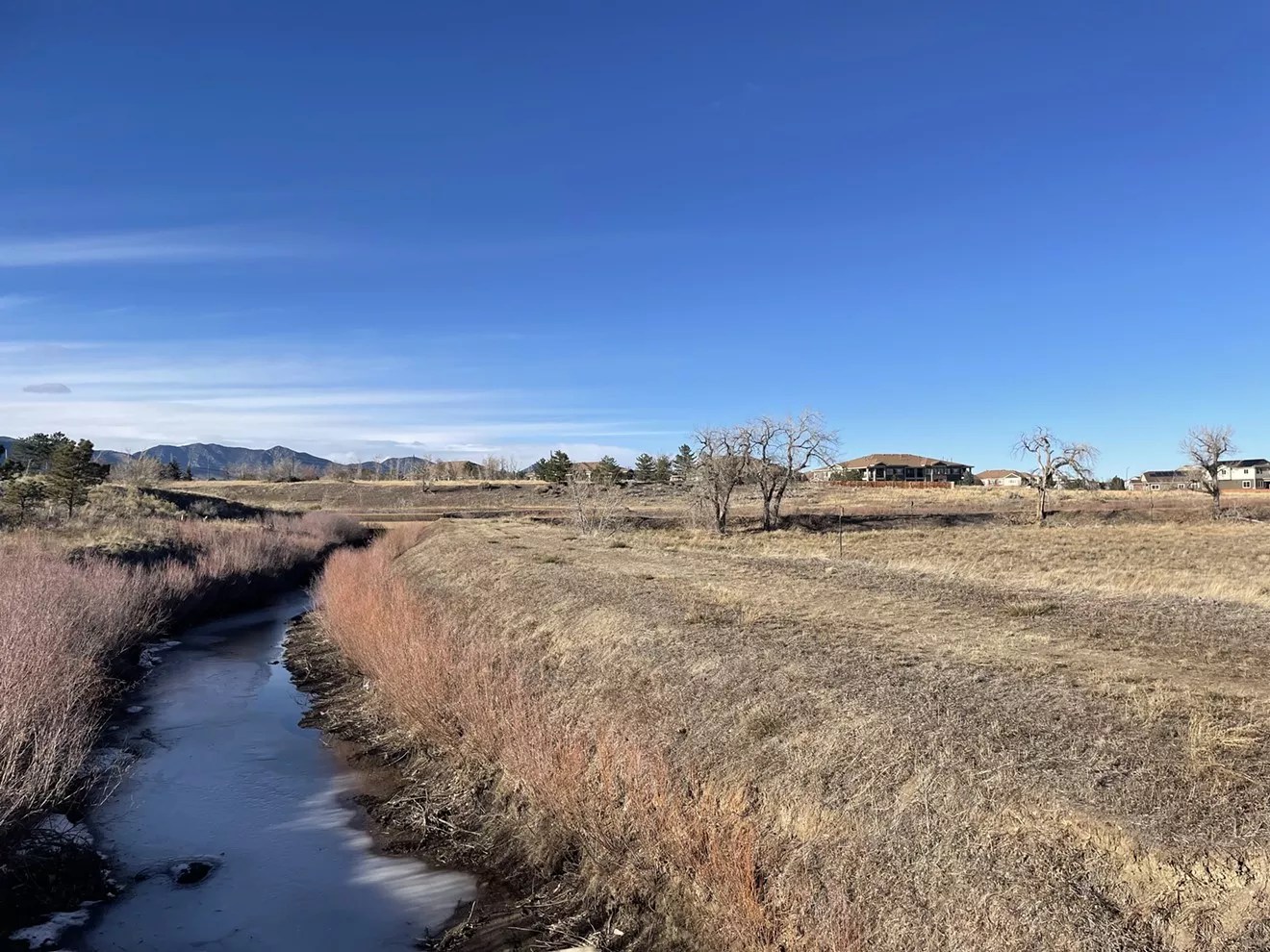
Catie Cheshire

Audio By Carbonatix
At today’s Jefferson County Board of Commissioners meeting, residents who are part of McIntyre Neighbors United – an organization formed to oppose a planned development off McIntyre Parkway and 58th Avenue – will try to slap a moratorium on “Amazon-type warehouse developments” in the county.
The group says that the county’s zoning code currently classifies logistics distribution centers like the one proposed near several neighborhoods in Jeffco as light industrial development when in reality, the impact they have on surrounding residential areas could be similar to that of heavy industrial projects.
“We’ve determined that this is a countywide issue,” says Anne Laffoon, one of the leaders of McIntyre Neighbors United.
The group has bloomed, with its members now including eighteen homeowners’ associations and 100 active volunteers. Many of these members spoke at a May 16 Jefferson County Board of Commissioners meeting about the idea for a moratorium. On May 23, they will officially submit a draft resolution into the record and request that the commissioners take it up for consideration.
The moratorium will ask that no logistics distribution centers within 3,000 feet of homes be approved until the zoning code is examined. Laffoon points out that in 2013, Jefferson County placed a moratorium on cannabis sales to study the issue before proceeding.
“That’s exactly what we’re asking for,” she says.
The proposal that led to the formation of McIntyre Neighbors United sits on a site where research and development was done for the mining industry operated by Cyprus Amax Minerals. The development – from Constellation Real Estate Partners, a Texas-based development group – would turn the site into an industrial business park.
Constellation argues that it wouldn’t be an “Amazon-type” project, as the group fears, seeing how it plans to preserve sightlines and build truck bays away from the edge of the site that abuts homes. However, the developer would not agree to a Good Neighbor Agreement when McIntyre Neighbors United requested one. The deal would have guaranteed that operations only took place during normal business hours and that buildings would be kept at two stories or less, among other provisions.
“Without knowing exactly who the tenants are, who the end users are, without having assurances from the developer and the county that they’re going to ensure that this truly is a light industrial business park similar to what is there now…we just need to read the black-and-white print on the application that says this is going to be a logistics distribution center,” Laffoon explains.
She notes that that no matter what the developers say they will do, the area’s zoning could allow thousands of semi trucks to go in and out each day. “The question is, is that truly a light industrial use?” Laffoon adds. “Our position is no, it’s not.”
Constellation did not respond to a request for comment.
Along with the worries about how the development could disrupt the neighborhood, residents are concerned because the property has been contaminated in the past. In 2007, Cyprus Amax removed soil that was found to be contaminated with radionuclides when it closed out its radioactive materials license with the Colorado Department of Public Health and Environment. Neighbors worry that more testing for uranium is needed to be sure that developing the land is safe. Before AMAX came along, the site was owned by Kerr-McGee, which buried waste on the property.
McIntyre Neighbors United isn’t just worried about old pollution; it’s worried about new pollution the development could bring to the area. That’s where the proposed moratorium would come into play.
“[Logistics distribution centers] are associated with increased cancer risks, pulmonary problems like increased asthma, incidences of asthma in children that are correlated with increased absences from schools,” Laffoon says. Zoning regulations should reflect those risks, she argues.
The project is still in the permitting phase, as it needs to work with the Army Corps of Engineers to rework the Farmers Highline Canal on the property and work with CDPHE to be sure that the formerly contaminated land is up to snuff. McIntyre Neighbors United hopes to get the moratorium in place before the development can proceed.
The group has asked for public hearings on the development, even though none are technically required, and their lack of success with securing those meetings has pushed them to take bolder action – like proposing this moratorium.
“McIntyre Neighbors United is asking that we build for the future,” Laffoon says, noting that housing, restaurants or a business park that would operate only during normal business hours would all be a better fit. “That, in our view, seems to be the opposite of a logistics distribution center.”
But because the county’s zoning considers those centers to be light industrial, they can be placed right next to homes, like this one would be. That shouldn’t happen in a city that is planning for the future, Laffoon argues.
The group’s moratorium could help other neighborhoods contemplate what sort of development is appropriate for them as well, she says. The goal isn’t just to stop this development; it’s also to give everyone in the county clarity in future development projects.
“Some folks, I think, will say, ‘Well, you’re just a bunch of NIMBYs,'” Laffoon says. “But this kind of logistics distribution center – which is a hybrid of a light industrial warehousing function combined with heavy industrial trucking and distribution operations – it shouldn’t be in anybody’s backyard.”